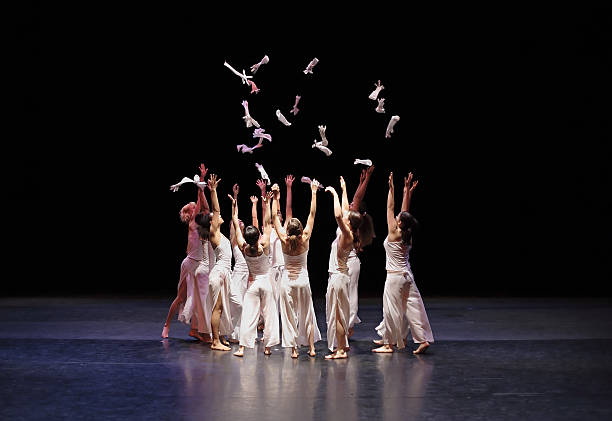Musicals are something everyone seems to enjoy. That’s because, there really is a musical for everyone nowadays. With all kinds of genres and storylines. However, have they always been this way?
Musicals, with their captivating stories, catchy tunes, and elaborate dance numbers, have enchanted audiences for generations. But where did these productions originate? Let’s take a journey through time to uncover the fascinating history of musicals. As well as how they evolved into the beloved art form we know today.
The beginning of musicals
The roots of musical theatre can be traced back to ancient civilisations. Where performances combining music, dance, and storytelling were an integral part of cultural and religious ceremonies. However, the modern musical as we know it began to take shape in Europe during the Renaissance period. So, has it been around for as long as we thought?
The birth of opera
In the late 16th century, opera emerged as the first form of musical theatre in Italy. Composers like Claudio Monteverdi created elaborate productions featuring sung dialogue, orchestral music, and theatrical staging. These early operas were often based on classical mythology or historical events and were performed in grand theatres for aristocratic audiences.
The rise of operetta
During the 19th century, operetta gained popularity in Europe. Particularly in countries like France, Austria, and Germany. Unlike opera, which focused on serious themes, operetta featured lighter plots, and incorporated spoken dialogue along with musical numbers. Composers like Jacques Offenbach and Johann Strauss II became renowned for operettas.
The golden age of broadway
The modern musical as we know it emerged in the United States during the early 20th century, with the rise of Broadway theatre in New York City. The “Golden Age” of musicals, spanning from the 1940s to the 1960s, saw the creation of iconic productions that defined the genre.
Influential works:
- Show Boat (1927): Often considered the first modern musical. “Show Boat” addressed serious social issues like racism and interracial relationships while featuring memorable songs by Jerome Kern and Oscar Hammerstein II.
- Oklahoma! (1943): This groundbreaking musical by Richard Rodgers and Oscar Hammerstein II revolutionised the genre with its integrated storyline, character development, and innovative choreography by Agnes de Mille.
- West Side Story (1957): With music by Leonard Bernstein and lyrics by Stephen Sondheim, “West Side Story” reimagined Shakespeare’s “Romeo and Juliet” in the streets of 1950s New York City, tackling themes of love, prejudice, and gang violence.
Modern musicals:
In recent decades, musical theatre has continued to evolve. With composers and lyricists experimenting with new styles, themes, and storytelling techniques. From Andrew Lloyd Webber’s epic spectacles to Lin-Manuel Miranda’s innovative blend of hip-hop and history in “Hamilton,” the diversity of modern musicals reflects the ever-changing landscape.
From its humble origins in ancient rituals to the glitz and glamour of Broadway, the history of musicals is a testament to the power of storytelling and the universal language of music. Through the centuries, musical theatre has captivated audiences, sparked imaginations, and provided a stage for artists to express their creativity and passion.




